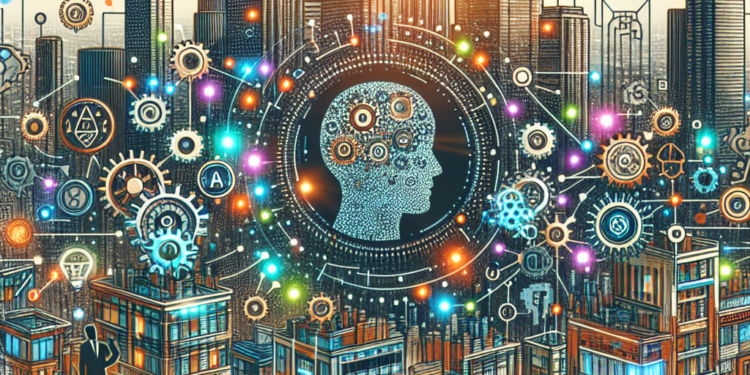In recent years, there has been a significant increase in the number of artificial intelligence (AI) startups that are disrupting traditional marketplace business models. These startups are leveraging the power of AI to create innovative solutions that are revolutionizing the way businesses operate and interact with their customers. From personalized recommendation engines to chatbots that provide real-time customer service, AI startups are redefining the marketplace landscape and reshaping the way we do business.
One of the key ways in which AI startups are innovating marketplace business models is through the use of predictive analytics. By analyzing large amounts of data from various sources, AI algorithms can predict customer behavior, trends, and preferences with a high degree of accuracy. This allows businesses to tailor their products and services to meet the specific needs of their customers, increasing customer satisfaction and loyalty.
For example, AI-powered recommendation engines are becoming increasingly popular in e-commerce platforms. These engines analyze a customer’s browsing history, purchase behavior, and demographic information to recommend products that are likely to appeal to them. This not only increases the chances of a sale but also enhances the overall shopping experience for the customer.
AI startups are also using natural language processing (NLP) technology to create chatbots that can provide real-time customer service. These chatbots can answer customer queries, provide product recommendations, and even process orders, all without the need for human intervention. This not only saves businesses time and money but also improves the customer experience by providing instant and personalized assistance.
Another way in which AI startups are revolutionizing marketplace business models is through the use of computer vision technology. This technology allows machines to analyze and interpret visual information, enabling them to perform tasks such as image recognition, object detection, and facial recognition. This has a wide range of applications across various industries, from retail and manufacturing to healthcare and security.
In the retail sector, AI-powered computer vision technology is being used to create cashier-less checkout systems. Customers can simply walk into a store, pick up the items they want, and leave without ever having to wait in line or interact with a cashier. This not only improves the shopping experience for customers but also reduces labor costs for businesses.
In the manufacturing industry, AI startups are using computer vision technology to automate quality control processes. Machines can now inspect products for defects and anomalies with a level of accuracy and efficiency that is impossible for humans to match. This not only improves the quality of the products but also reduces the risk of costly recalls and returns.
AI startups are also leveraging the power of generative adversarial networks (GANs) to create hyper-realistic images and videos for marketing and advertising purposes. These networks consist of two competing neural networks – a generator and a discriminator – that work together to create high-quality content that is indistinguishable from real images and videos. This allows businesses to create engaging and visually compelling content that captures the attention of potential customers.
One of the key advantages of AI startups is their ability to scale rapidly and efficiently. By leveraging cloud computing resources and open-source AI frameworks, startups can quickly develop and deploy AI-powered solutions without the need for substantial capital investment. This enables them to compete with larger, more established businesses on a level playing field, driving innovation and pushing the boundaries of what is possible in the marketplace.
In conclusion, AI startups are revolutionizing marketplace business models by leveraging the power of AI to create innovative solutions that drive efficiency, enhance customer satisfaction, and generate new revenue streams. By harnessing the power of predictive analytics, natural language processing, computer vision, and GANs, these startups are reshaping the way businesses operate and interact with their customers. As AI technology continues to evolve and mature, we can expect to see even more groundbreaking innovations that will redefine the marketplace landscape for years to come.













